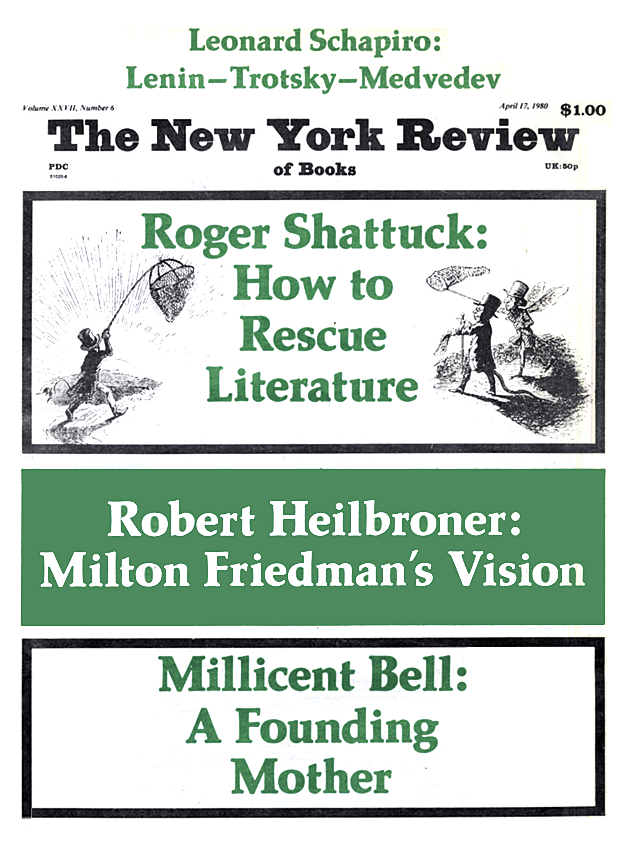In response to:
Poet's Gallery from the February 7, 1980 issue
To the Editors:
There can be little question that Helen Vendler is a serious and elegant critic of literature. But her review of Professor Marjorie Perloff’s “critical biography” of Frank O’Hara seemed to me far more kind than it should have been. No doubt Mrs. Vendler took for granted that Professor Perloff’s documentation was in good order and that she had interviewed the most reliable and intelligent friends and colleagues of a writer killed before his prime.
The sadness is that as the myth making continues it becomes harder to assess what in O’Hara’s work was very good. The Collected Poems contains a large amount of ephemera which O’Hara himself would never have published in a collection. A careful selection of the best work would have projected clearly O’Hara’s seriousness and high talent. It was a changing and developing talent which like John Ashbery’s would surely have moved to larger and less personal themes. And it is a mistake to regard O’Hara simply as a “painter’s poet” because he was close to so many artists of the New York School. His grasp of literature and the practice of poetry was too sure, his intelligence too keen to limit himself to simple depictions of the visible world, or the process of making art.
Professor Perloff’s book has rendered Frank O’Hara no service by adding to the hagiography and the confusion.
John Bernard Myers
(Publisher of O’Hara’s Semi-colon poems, Oranges, A City Winter, Love Poems-Tentative Title)
Brewster, New York
Helen Vendler replies:
The elusiveness of a life is the despair of every biographer; the mystery of literary interaction the despair of every literary historian. To say this is not to deny that we have an insatiable appetite for both forms, nor that some chroniclers are better than others.
Some readers have mentioned that Blackmur was more charitable to Cummings in later years. One need only compare Blackmur’s faint later praise of Cummings with his sustained praise of authors he profoundly admired to see that he never found in Cummings more than a minor inventiveness.
I think Marjorie Perloff agrees with Mr. Myers that Frank O’Hara did not “limit himself to simple depictions of the visible world, or the process of making art.” Mr. Myers is in a better position than I, since he knew O’Hara, to criticize Perloff’s impressions of O’Hara’s life and personality.
This Issue
April 17, 1980


